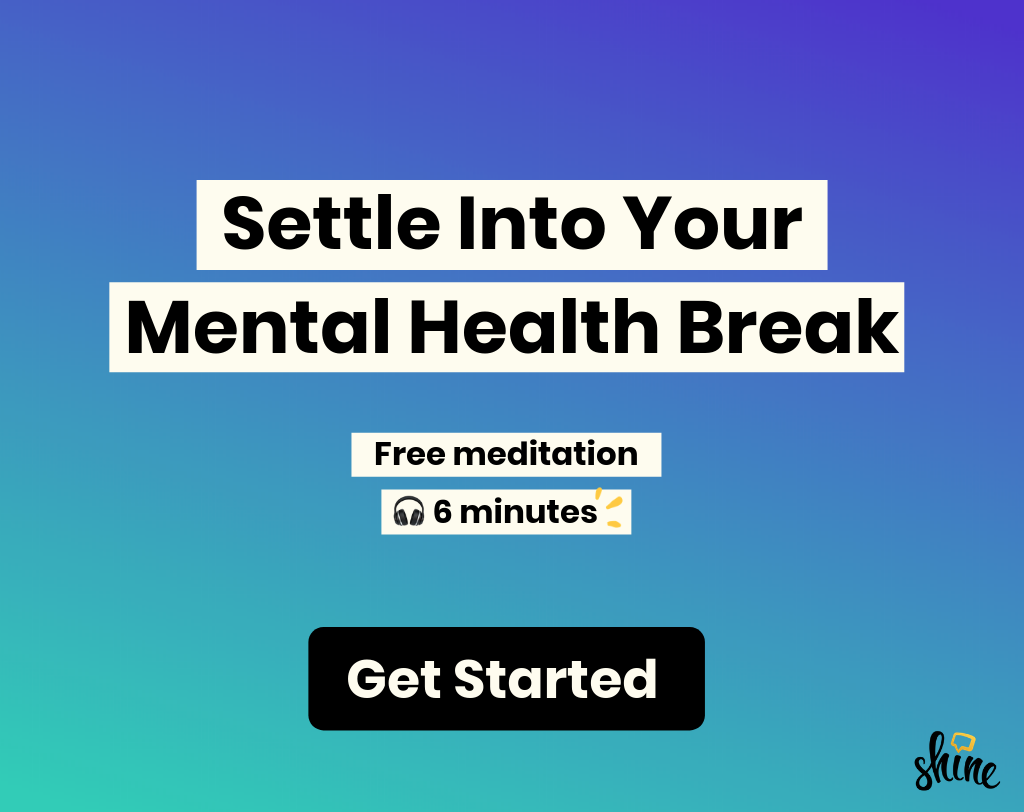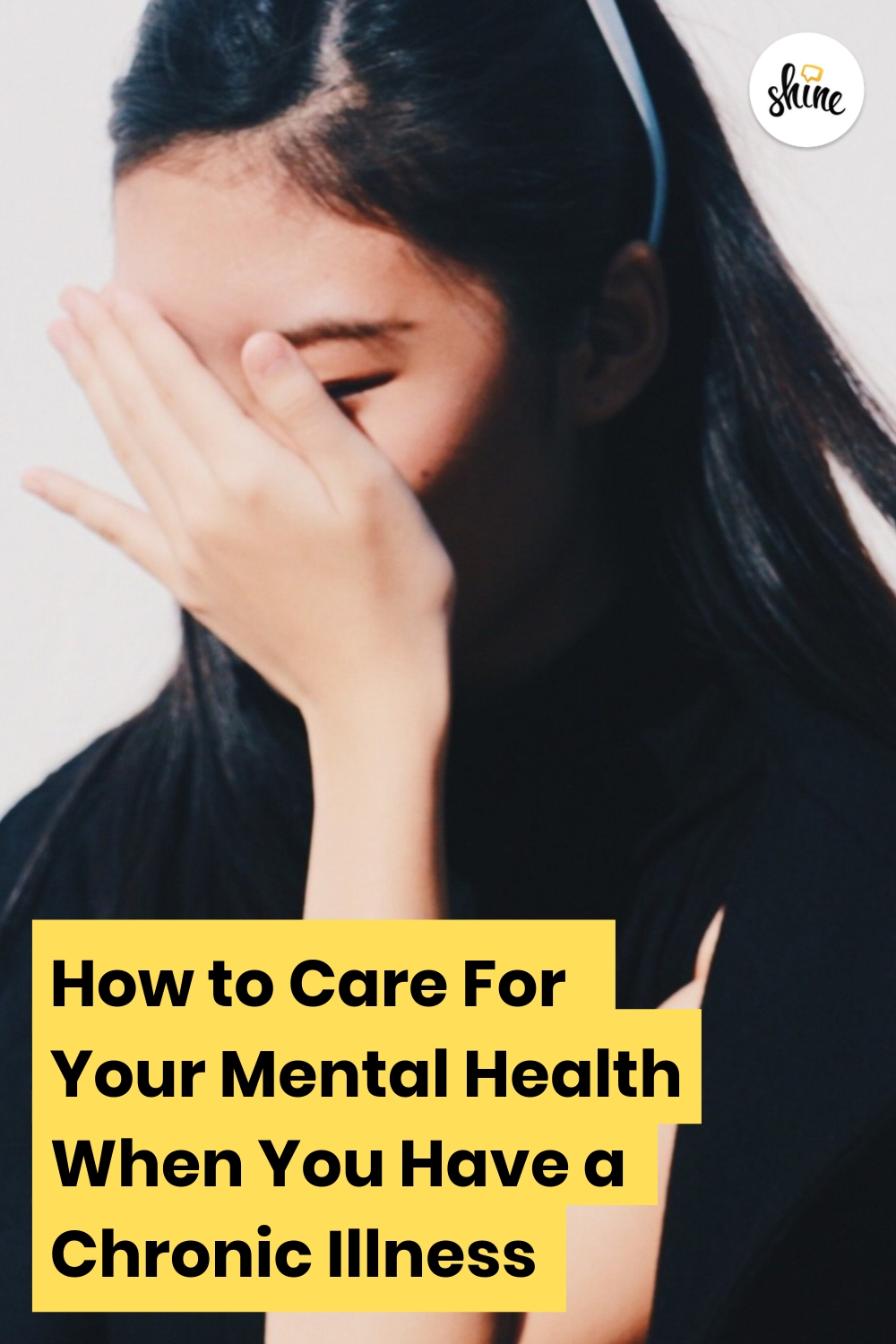How to Care For Your Mental Health When You Have a Chronic Illness
May 15, 2019
Self-care has never been trendier. By now, we all know to make time for ourselves, create boundaries, and treat mental health as seriously as we do our physical health.
But for those living with a chronic illness, things aren’t so cut-and-dry: Regular pain and fatigue can exacerbate negative emotions—and make them harder to manage.
“Chronic health conditions can definitely take a toll on mental health,” says marriage and family therapist Daniela Paolone, L.M.F.T., who has lived with chronic illness for the last decade and often treats patients managing chronic conditions. “It can feel like (you’re) treading water, trying to keep up with your day-to-day responsibilities, but the emotional and mental stress brings you down and is mentally exhausting."
Paolone says those with chronic and serious illness are prone to increases in anxiety, depression, feelings of helplessness, and negative self-talk, as well as poor sleep, strained relationships, panic attacks, and trauma from their illnesses.
The key to coping, says health psychologist Susan Masterson, Ph.D., is to be gentle with yourself. Trying to shimmy your way out of a chronic condition just piles on the shame and frustration, and can amplify symptoms such as fatigue.
“You can’t put that kind of weight on yourself,” Masterson, who has lived with autoimmunity for years, says. “It doesn’t work like that. You can live your best lifestyle to give your body its best shot, but the disease is going to be there.”
Instead, she says, caring for your mental health means making peace with your new reality, adjusting your life to fit your needs, and committing to treating yourself kindly.
Caring for your mental health means making peace with your new reality, adjusting your life to fit your needs, and committing to treating yourself kindly.
Here’s how to make that happen.
Take Time to Process Your Diagnosis
Landing on a diagnosis can take years of appointments, self-advocacy, and lots of self-doubt. So if and when you can finally put a name to the pain, give yourself permission to pause and feel your (many) feels.
“(A diagnosis) can feel great, but at the same time you’re furious because you have years and years of crying out for help while nobody’s listening,” Masterson says. “And there’s anxiety about your body’s future—what else don’t you know about?”
If and when you can finally put a name to the pain, give yourself permission to pause and feel your (many) feels.
Plus, she says, a diagnosis often squashes the dream of a quick fix. “You’ve been thinking all these years that if you could just find the one remedy to make your fatigue go away, everything would be solved,” Masterson says. “But now you’re not going to get that one solution.”
As strange as it may feel in the moment—isn’t a diagnosis what you wanted?—recognize that your frustration is totally valid.
Grieve the Past and Future
Moving forward with a chronic illness often means saying goodbye to the more carefree life you once lived—and your plans for the future.
“Getting to know this new version of yourself while grieving over the person you once were, and the life you once had, is a mental and emotional process that many with chronic and serious illness go through,” Paolone says.
Again, give yourself permission to feel angry or sad. Burying those feelings won’t make them go away—it just means they’ll fester and grow.
You’ll start to make plans and new goals soon enough, but it doesn’t have to happen right away.
Make Time for Self-Care
When you only have so many PTO days available—and you need to save them for unexpectedly difficult days—it can help to incorporate short self-care practices into your daily life rather than relying on days off for a break.
“Scheduling personal time is a great idea,” Paolone says. “Setting up daily self-care goals is a good starting point, because having some sort of self-care practice benefits your mental health, emotional health and physical health.”
Try starting each day with a few minutes of breathwork, or ending it by writing a page or two of reflection. Pain may make that impossible some days, but sticking to a self-care practice when you can may help those tough days be easier to manage, and can be grounding when it feels like you don’t have much control.
Sticking to a self-care practice can be grounding when it feels like you don’t have much control.

Go at a Regular Pace
If you wake up feeling great, of course you’d want to do All The Things. “You’re going to have good days, and you’re going to feel like, well, it’s a good day—I should take advantage of it,” Masterson says. But before you book a massage, whip up a healthy meal and head to the beach, take a beat.
“A lot of chronic illness patients will tell you that they’ve learned the hard way that you can’t take advantage of pain-free days,” she says. “If you go beyond what your body can handle, you’re going to pay for it. Moving at a regular pace is better.”
'A lot of chronic illness patients will tell you that they’ve learned the hard way that you can’t take advantage of pain-free days.'- Susan Masterson, Ph.D.

Commit to taking regular breaks—even if you don’t think they’re necessary—and forming good-for-you habits like eating healthy meals and a regular sleep schedule.
At work, Masterson says, “make sure your boss knows you have to get a lunch break. Sometimes you just need to go out and sit under a tree.” You can still Treat Yo’ Self, but think of it as a regular thing, rather than a one-day extravaganza.
Open Up to Those You Can Trust
Chances are, your friends, family, and coworkers want to help—they just don’t fully understand what you’re going through.
Since a support system can make all the difference, make things easier by explaining what life is like in your shoes.
“Painting a picture of what a typical day for you might look like, I think, can help others to be empathic, patient and understanding,” Paolone says. “I will say, though, that... you never know how someone will react. I know that in my case, I have been selective in who I share this information with because opening up to the wrong person can pose its own challenges with that particular relationship.”
Get Support From an Expert
“It is great to be able to talk to friends and family, but serious and chronic illnesses are topics that can easily strain those relationships—especially when the health difficulties continue over the long-term,” Paolone says. “Making caregivers, friends, and family the go-to person to speak to about health challenges does take a toll on their (own) mental and physical health.”
If you’re worried about overloading a loved one, look for a therapist or mental health professional who has experience dealing with chronic illness. (It’s often listed on a provider’s website, though a doctor or more generalized therapist should be able to refer you as well.) “Having a therapist to talk to about what you are going through can make such a difference,” Paolone says.
Find a Community
“Connecting with others with similar illnesses in creative ways can be incredibly helpful,” Paolone says. “We are social creatures, so when we have more social connections and support from professionals, that can effectively combat...mental health struggles.”
“We are social creatures, so when we have more social connections and support from professionals, that can effectively combat...mental health struggles.”- Daniela Paolone, L.M.F.T.
Masterson belongs to a Facebook group for members with her illness, and Paolone suggests looking for a peer- or professional-led meetup to help you feel less alone in your condition.
Both digital and IRL groups can be found online, or by asking a doctor or therapist for support opportunities.
Remember: Chronic illness can be isolating, but you should never have to manage it alone.
If you’re struggling with your mental health, know that seeking help is a strength—not a weakness. If you or someone you care about needs help, text 741741 to talk with a crisis counselor at Crisis Text Line—it's free, confidential, and available at all hours.
Read next: Your Complete Guide to Mental Health Days


Shine is supported by members like you. When you buy through links on our site, we may earn an affiliate commission. See our affiliate disclosure for more info.


